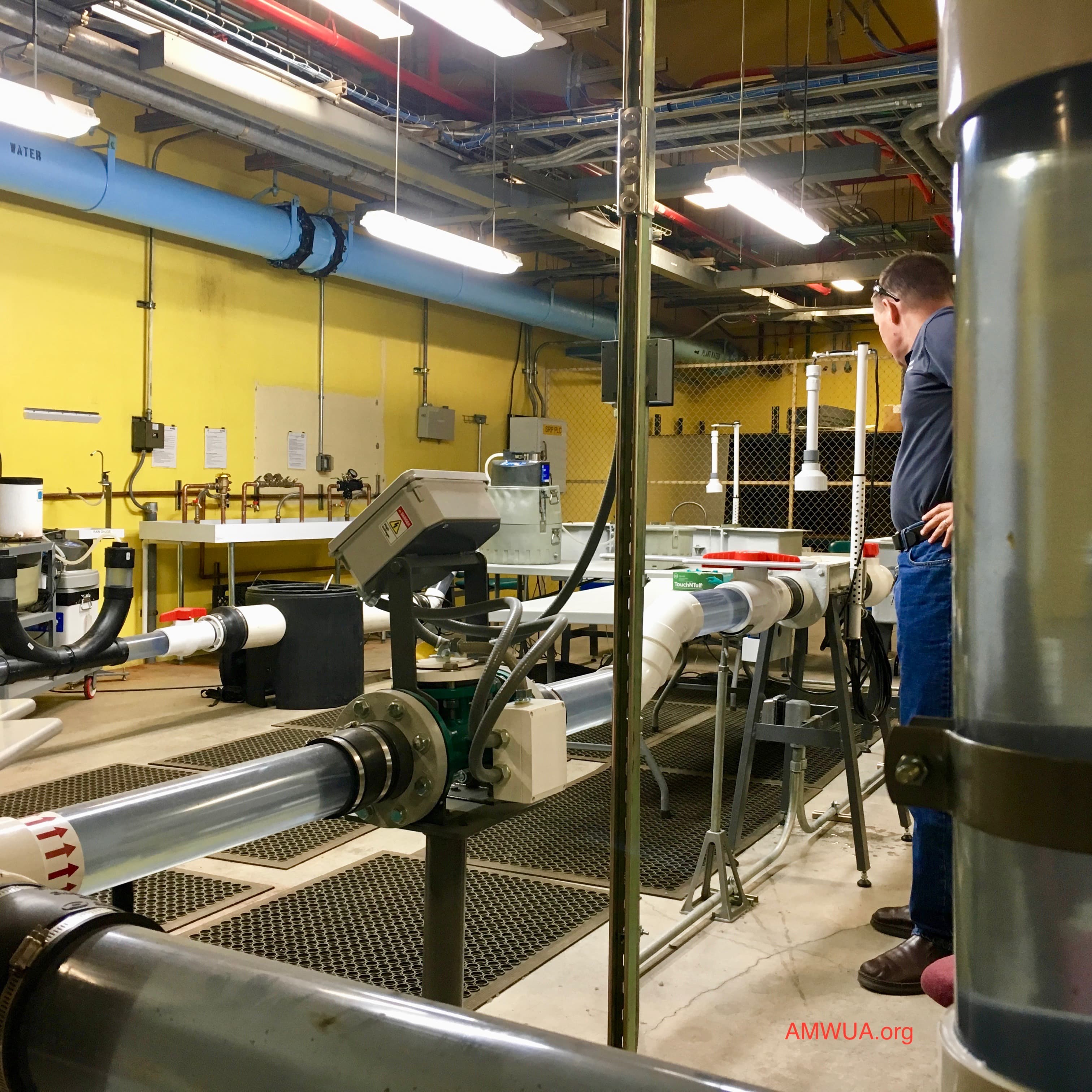AMWUA Blog
BY: Warren TenneyNeed Inspires Tempe To Create Unique Training Facility

In 2013, the City of Tempe had 25 water professionals with over 850 years of institutional knowledge and all of them were eligible to retire before the end of 2017. Tempe needed a way for these employees to pass on their knowledge and experience to the next generation before their departures. The city solved this problem by constructing the Tempe Environmental Sampling Campus, a teaching tool so unique that it has earned national attention in professional magazines and at conferences.
What is Sampling? There is a crew of employees in your city who sample water every day – your drinking water, treated wastewater, storm water, and water pre-treated by industries and businesses before it is dumped into a city’s sewer. These technicians use different sampling and testing equipment at dozens of spots within a city’s water and wastewater systems. Sampling is required to ensure three things:
- Drinking water reaching your tap is healthy and looks, tastes and smells good.
- Wastewater entering any drain in the city – residential, business or industrial - will not damage wastewater pipes and plants.
- Recycled wastewater will not harm rivers, lakes, streams or aquifers once it is discharged.
The sampling process is federally mandated and the paperwork tracking each sample from the sample site to the laboratory is tedious.
The Problem: Tempe was one of many cities where staff and budget cuts left little time for experienced professionals to share their expertise with newer employees and provide detailed and repetitive on-the-job training. Few out-of-state training options existed that covered the city’s training needs. Vendors who sold the city its sampling equipment could train employees on one machine, but they were not familiar with each sampling site or treating water in Arizona. Retiring employees who were or had been professional samplers were familiar with the best way to collect a sample at each site and track its custody. They also understood how each piece of equipment worked in the field and what to do in case the equipment showed signs of wear or malfunctioned. The problem was how to pass that knowledge on to their successors.
The Solution: What Tempe needed was a training module that simulated field conditions where experienced professionals could continually train and test new employees and new equipment. There was no such thing until five Tempe water professionals decided to build it. Over six to nine months in 2014 – working weekends and late in the day - these pros designed the teaching tool they needed, found money through the city’s capital improvement funds, and built the City of Tempe Environmental Sampling Campus. Its main training tool is a 50-foot loop of four-inch clear PVC pipe where water flows through a half dozen sampling devices – and even a manhole. It sits in the basement of the South Tempe Water Treatment Plant, which also provides employees with the opportunity to train at a groundwater well and drinking water site. Generations of water professionals now have the training facility they need to discuss and recreate past failures and successes in a controlled and relaxed setting. Employees also can test and master new technologies and equipment before they are put to use in the field.
The Success: Tempe built the Environmental Sampling Campus to train its own employees but the Arizona Department of Environmental Quality (ADEQ), staff from private water agencies and over a dozen Arizona cities have used the facility, including Valley cities and Yuma, Flagstaff, Sierra Vista and Kingman. A water-training program at Gateway Community College in the City of Phoenix also incorporated the Environmental Sampling Campus into its curriculum. When facing a crisis, Tempe’s water professionals created a solution for the entire state.
For 49 years, Arizona Municipal Water Users Association has worked to protect our member cities’ ability to provide assured, safe and sustainable water supplies to their communities. For more water information visit www.amwua.org .
